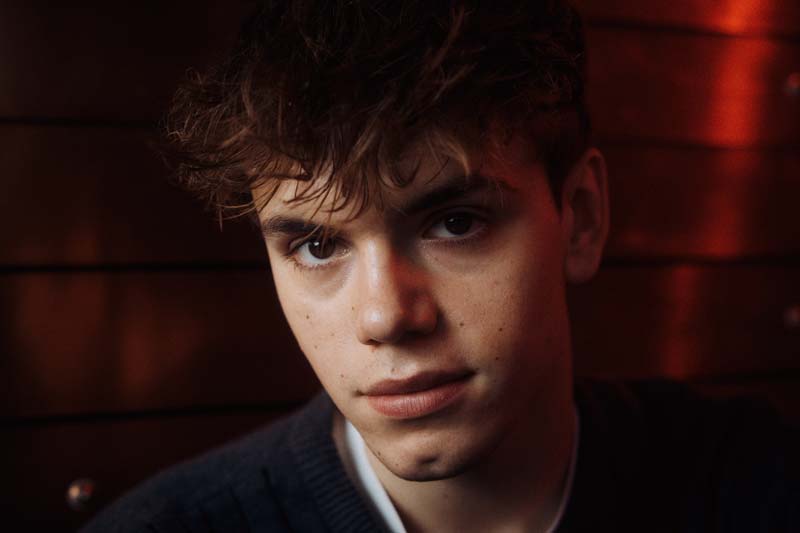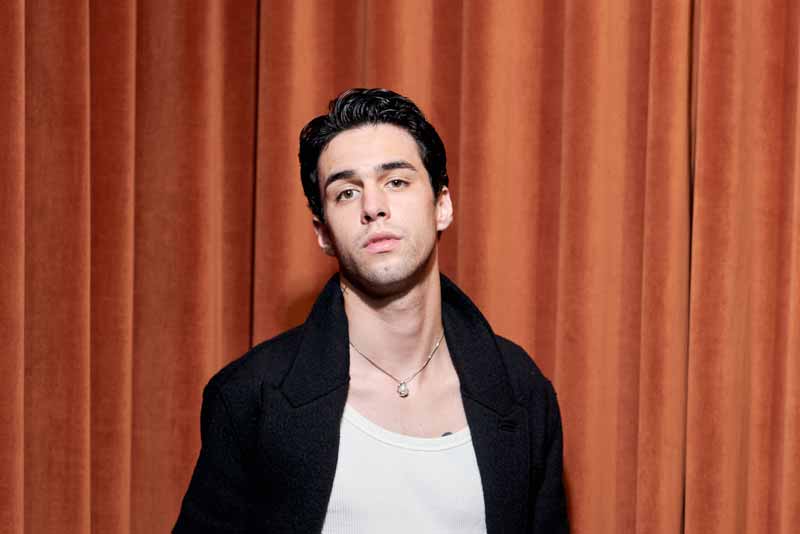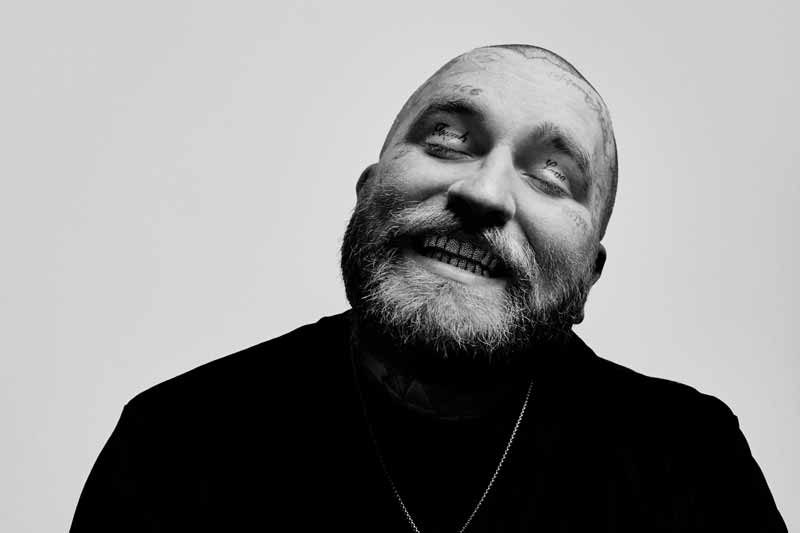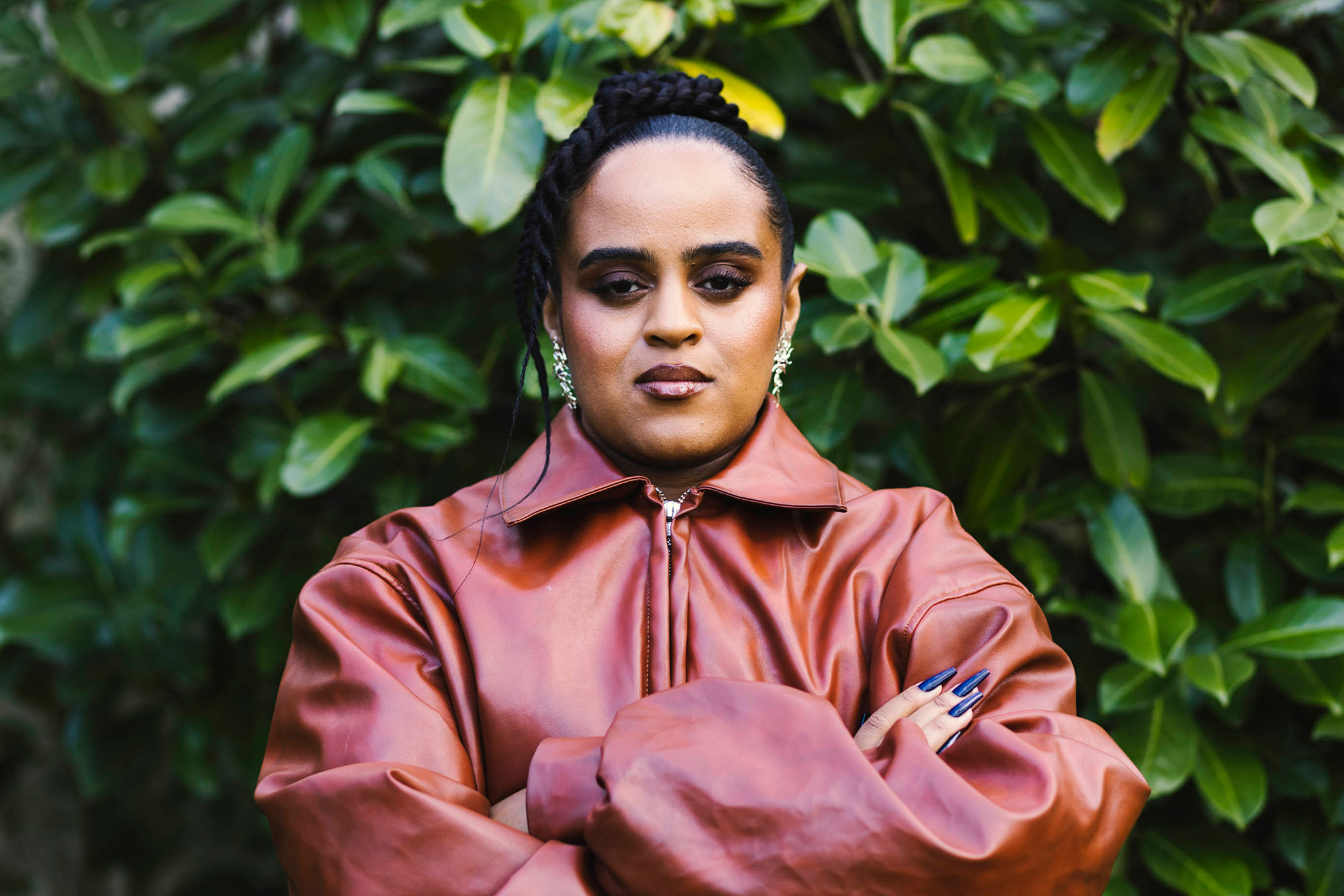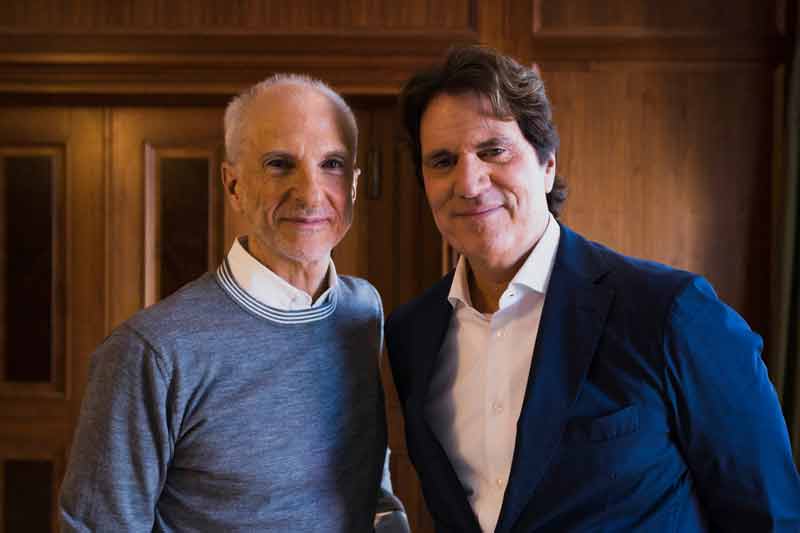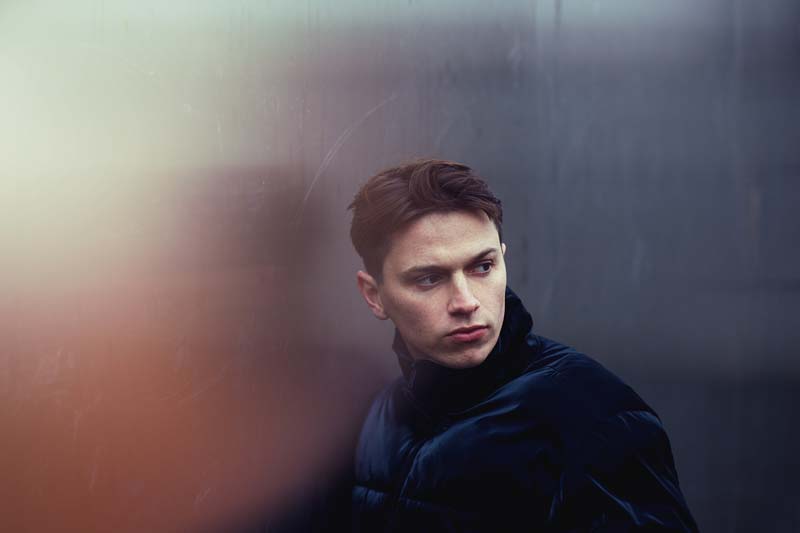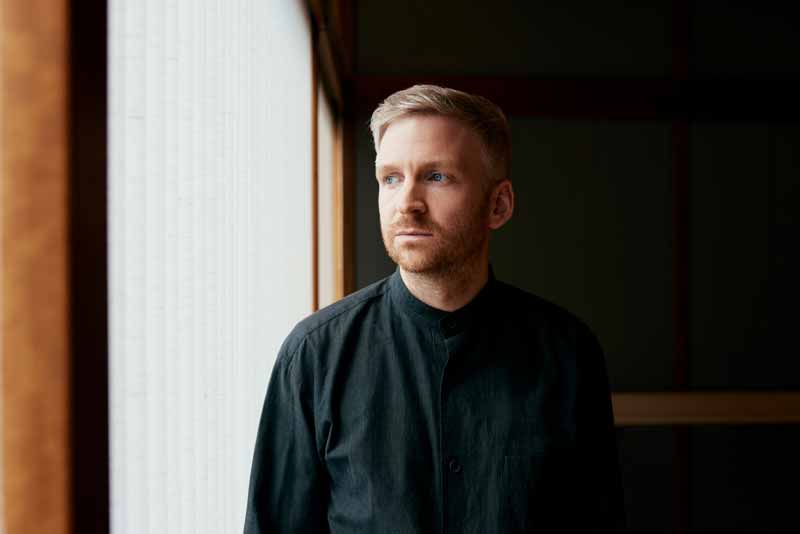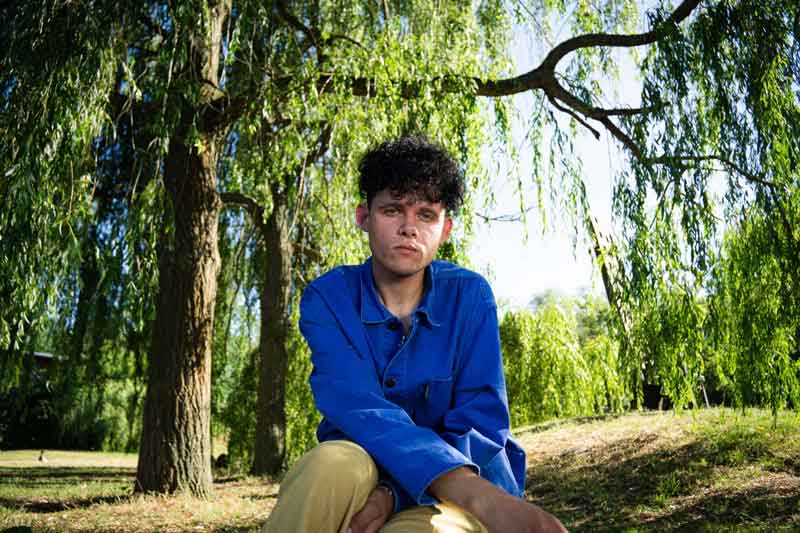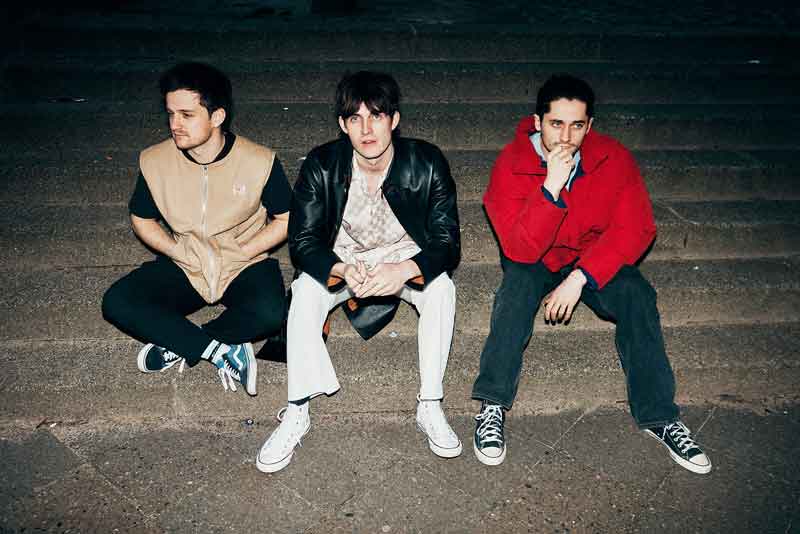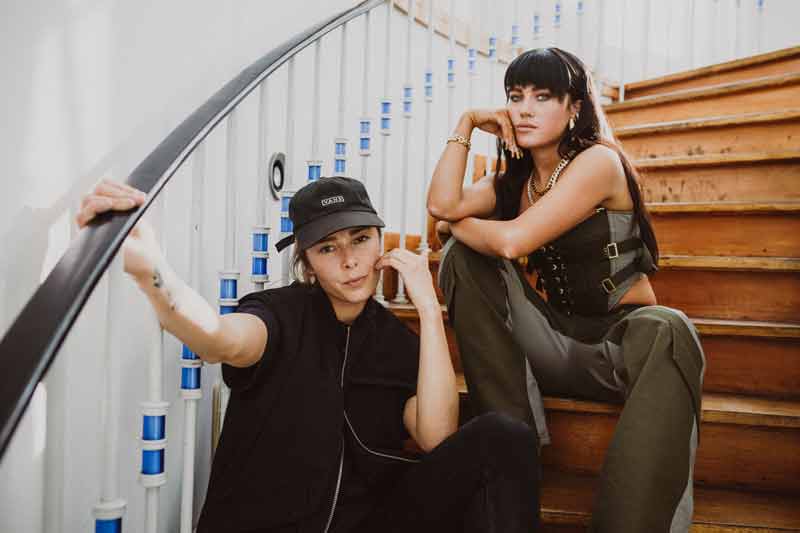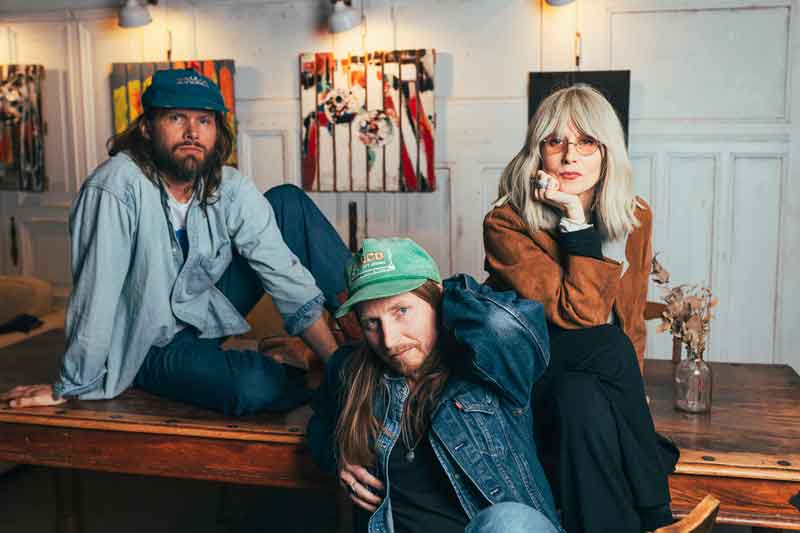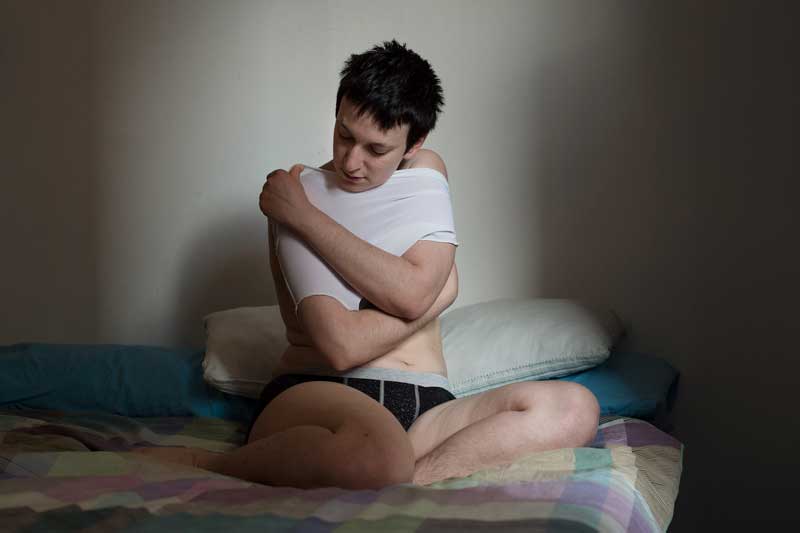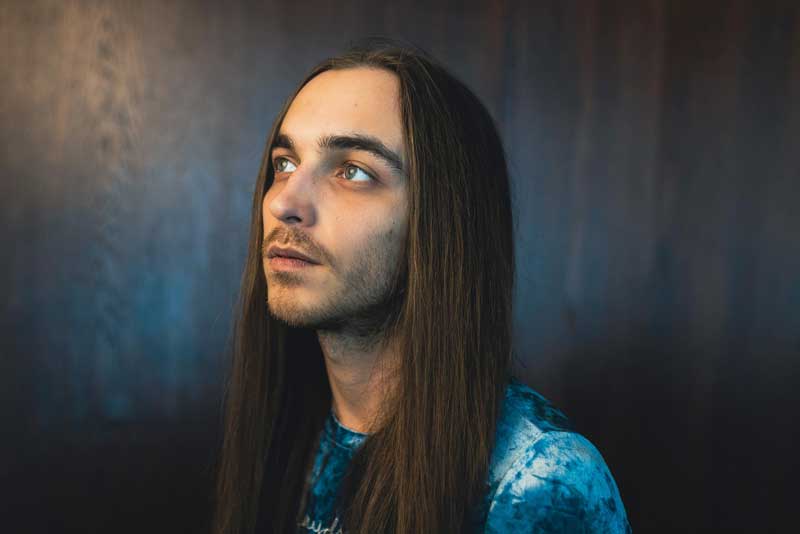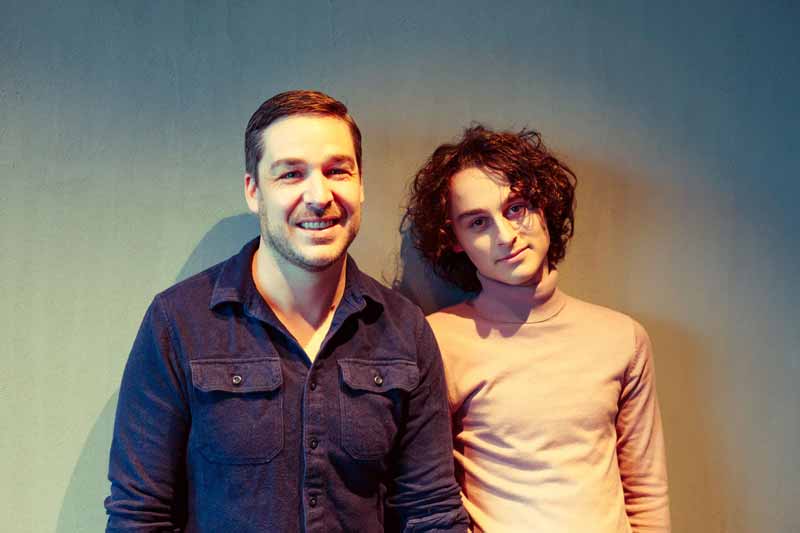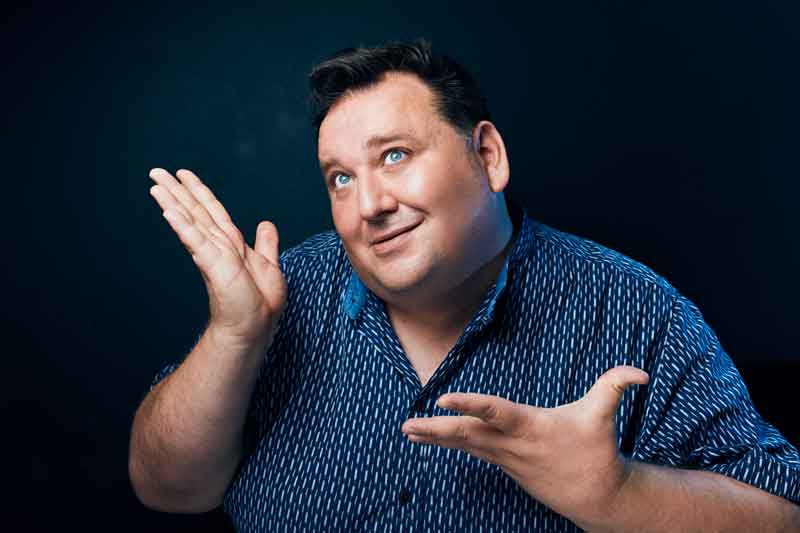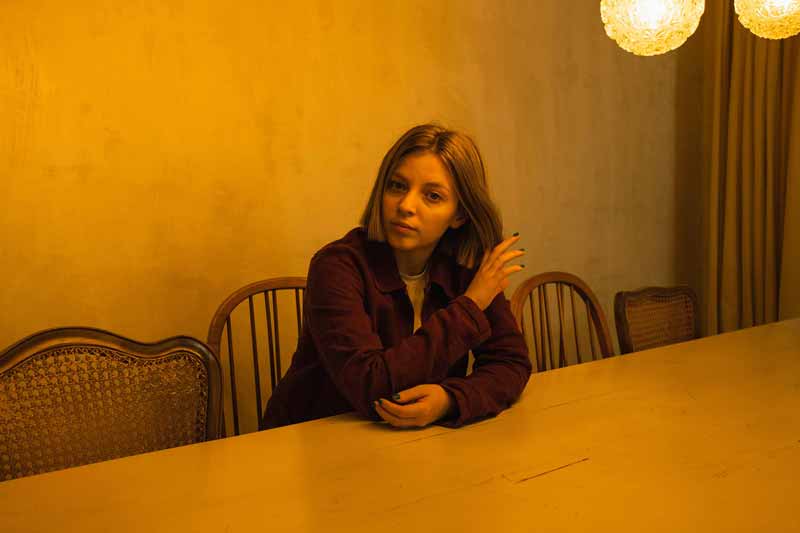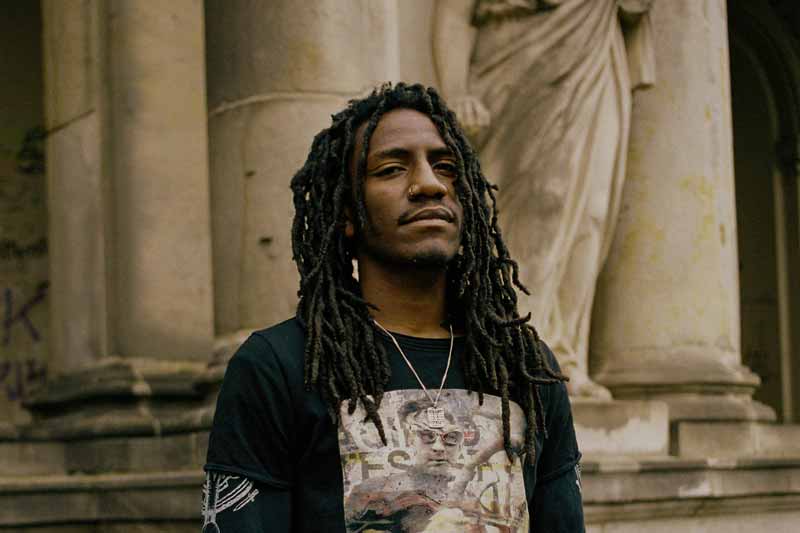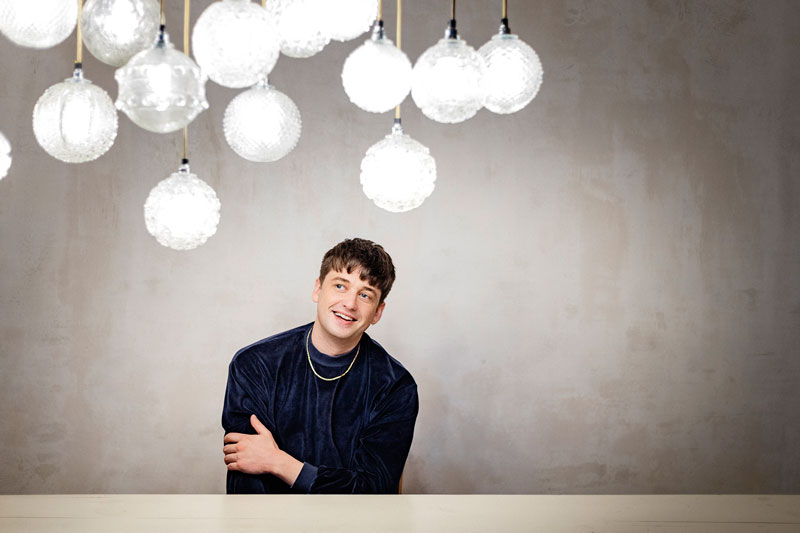Interview — Fionn Whitehead & Stéphane Bak
The Essence Of Friendship
In »Roads«, two teenagers—played by Fionn Whitehead and Stéphane Bak—embark on an adventurous journey in a quirky RV. A wonderful story of friendship between two very different young men unfolds, accompanied along the way by very personal challenges and the inevitable adversity of the world.
30. Mai 2019 — MYP N° 25 »Twilight« — Interview: Jonas Meyer, Photography: Maximilian König
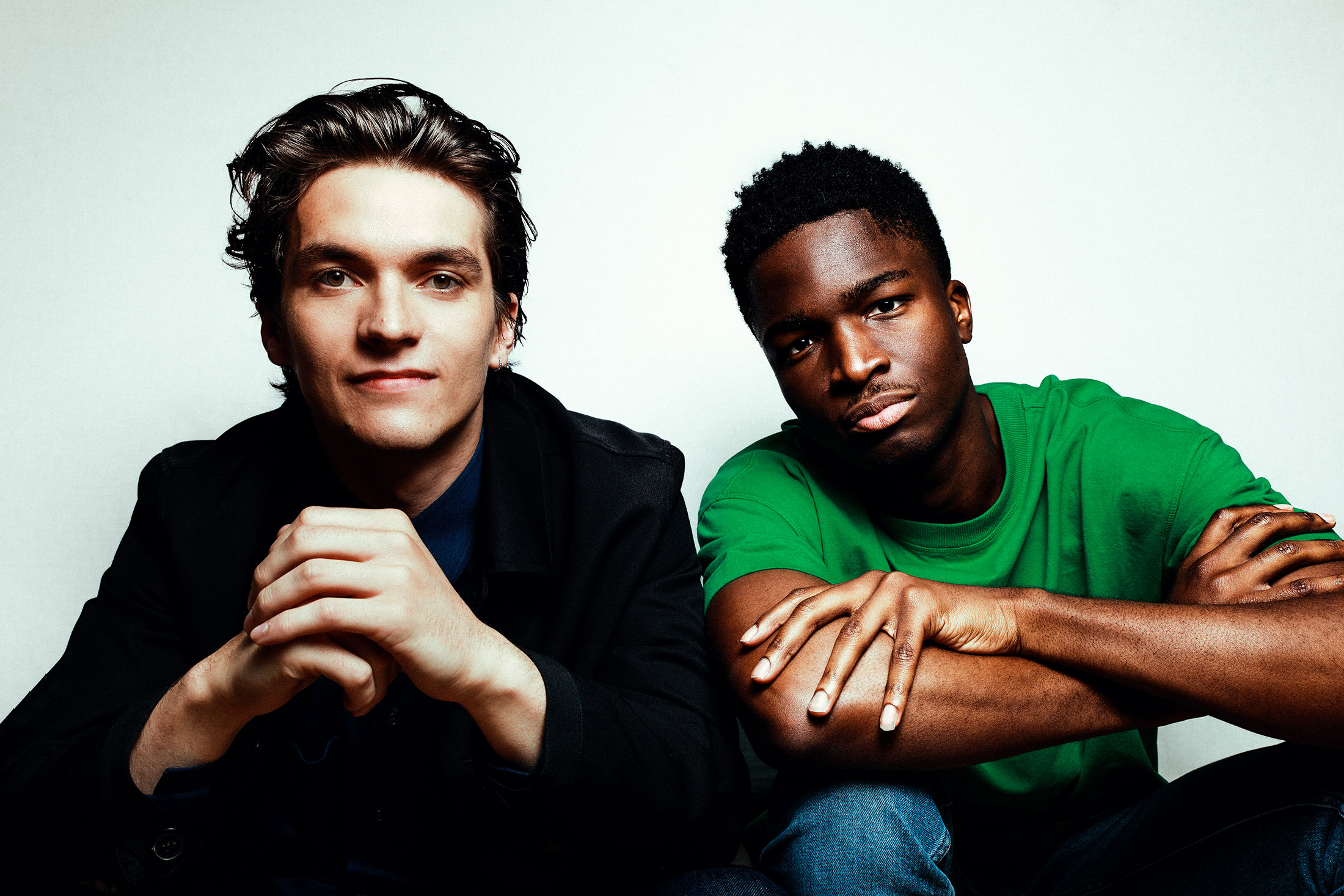
Who do we recognize when we see a strange face? Could it be a child soldier? The son of Jean-Claude Van Damme? The youngest magician in Las Vegas? Or maybe Jesus? Our heart and brain are always setting a trap when it comes to categorizing an unknown counterpart in any form, even before we have spoken to them—let alone hear their story, or know their true nature.
The idea that humans are primarily influenced by countless stereotypes that are confirmed through physical appearance is demonstrated in a simple but revealing game by two teenagers named Gyllen and William, the main characters in Sebastian Schipper’s new film Roads. The two boys sit facing each other and one closes his eyes. When he opens his eyes again and looks straight in the familiar face of his counterpart, the other one names the first character or role to come to mind that could belong to that face. The variety of their answers, ranging from “child soldier” to “Jesus,” shows: The person in front of you could be anybody, so do not judge by their physical appearance.
Gyllen and William meet in Roads by accident. Seventeen-year-old Gyllen, played by Dunkirk star Fionn Whitehead, lives in the UK and is on a family vacation with his mother and her new husband in Morocco. After a quarrel, he quickly escapes with his stepfather’s quirky RV and decides to drive it to France—to his birth father, who lives with his new family there.
After only a few kilometers, the plan falls apart, as the RV fails to start again and Gyllen becomes desperate. This is all observed by 18-year-old William from Congo, who is searching for his missing brother and suspects he may find him in a refugee camp in Calais. William, played by the young French comedian and acting talent Stéphane Bak, is able to help Gyllen to get the RV going again with just a few simple steps—and Gyllen, in turn, offers to take William with him to France. This is the beginning of an adventurous journey throughout Europe, which puts the two through difficult challenges again and again, all of which bring them closer together.
Thus Roads is first and foremost a story about friendship and two young men who learn to trust each other and to just have fun, despite the many adversities that life throws at their feet. At the same time, director Sebastian Schipper succeeds in sensitively portraying an unadulterated view of Europe alongside this extraordinary story of friendship—a Europe which seems completely overwhelmed by the so-called refugee crisis. The film does not gloss over anything, but it also does not point fingers. It is simply a picture of what is going on in the world right now.
In Roads, again and again, the private conflicts of the two friends repeatedly circle around the seemingly intractable socio-political problems of Europe. Yet somehow, the two charismatic teenagers manage to make their own way through all their adversities, even though they don’t have much more than themselves, their friendship, and their confidence. Anyone watching this film will feel the need afterwards to meet their best friend for a beer, to hug them, and to have a chat about the world together.
In a Berlin hotel we meet with the two main actors Fionn Whitehead and Stéphane Bak, whose friendship in reality seems to be as strong as in the film.
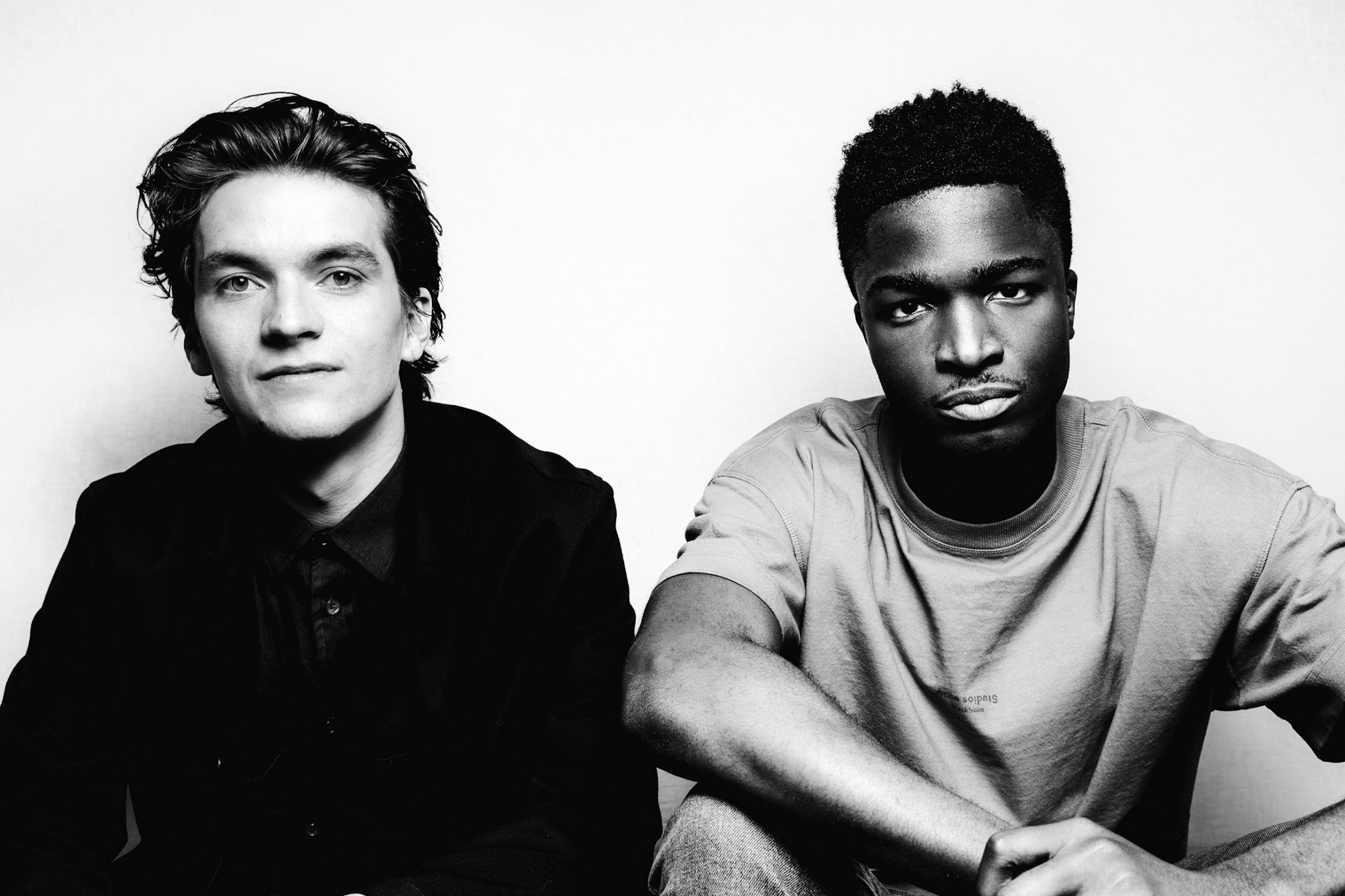
»I don’t give many people my trust, I usually need to suss someone out for a couple of years.«
Jonas:
Roads is primarily a wonderful story of friendship—despite all the misery and the big unsolved problems that come along with it. What does the friendship that is told in the movie teach you about your very own friendships in your personal lives?
Fionn:
I think that the script and the whole process taught me to open up to people and to not be afraid to let them in. It’s like the old saying “No man is an island,” you can’t bear it all on your own which I think we’re all very susceptible to, especially in the West. It’s like isolating ourselves and trying all the time to push on, thinking we could do everything on our own. But actually, that’s not the case. And it’s not healthy—and not necessary. It’s okay to rely on friends and people around you.
Stéphane:
I agree, I learned the same thing, which was great for my personal life, especially in terms of trust issues. I don’t give many people my trust, that’s the case even with my closest friends. I usually need to suss someone out for a couple of years. Roads teaches me to count more on my friends and not to be afraid to share my feelings more often. I mean, that’s something I’m constantly working on anyway, but it’s also my main learning from the movie.
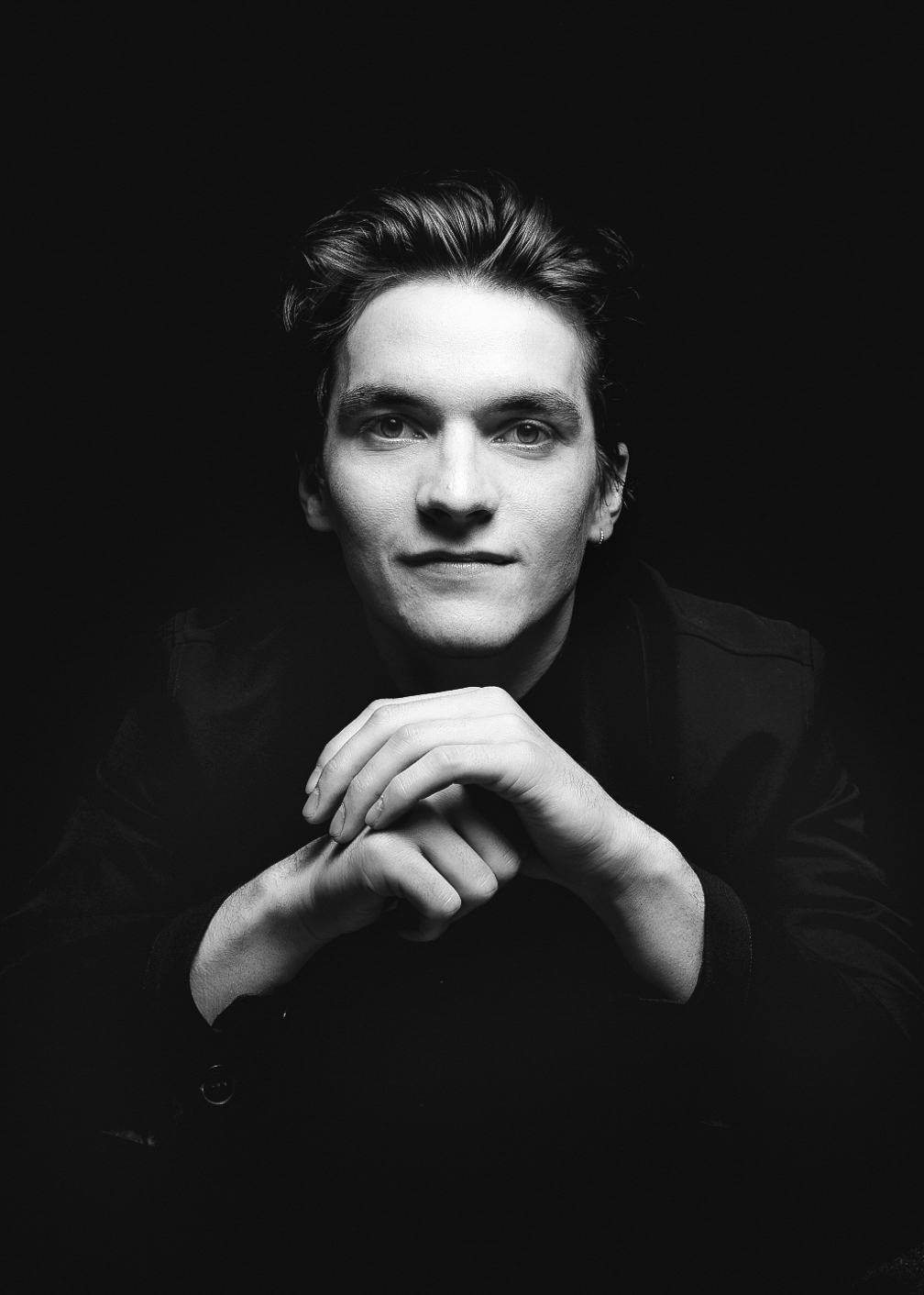
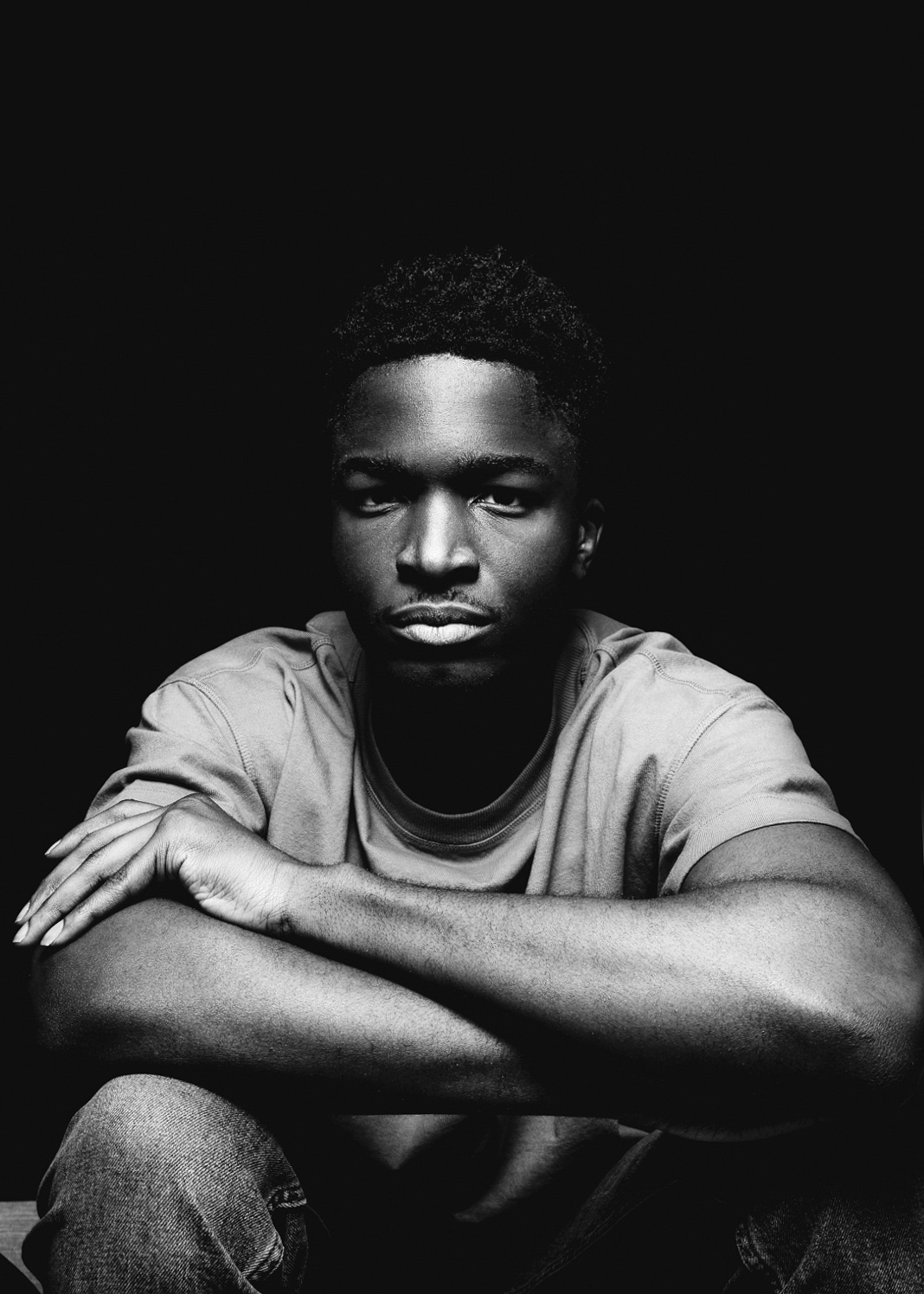
»Friends are able to see when you are in a rut or you’re stuck in your own head or overanalyzing something.«
Jonas:
There’s a scene in the film when Gyllen shouts at William and tells him to “fuck off” and to just disappear. But William doesn’t leave, he jumps on Gyllen instead, holds him and hugs him consolingly. Do good friends, in the end, know what’s better for your own life than yourself?
Stéphane:
It depends. I mean, we all need our friends and we need people to rely on. I became super best friends with a guy who I met just two years ago. That’s a very short time, but I feel like he knows me better than some other people that I’ve known for like 18 years or whatever. He’s a person who actually knows sometimes what’s better for me and who’s able to read through my bullshit. And that’s the best, it’s great to have those people in your life. But I would also say that I’m still my best advisor myself because, at the end of the day, I’m the only one that really can make any choices for my own life.
Fionn:
Maybe sometimes your friends know better, but I don’t know if I would phrase it like that. I would rather prefer to say that your friends know you better than yourself. They’re able to see when you are in a rut or you’re stuck in your own head or overanalyzing something—better than sometimes you can because they’ve been around you objectively rather than being in your head. So they can give you advice and talk to you from a distance rather than you being all wrapped up in it.
Jonas:
There are a lot of remarkable scenes in the movie. A very impressive one has Gyllen and William sitting in their old RV playing a game: They sit in front of each other and one of them closes his eyes. When he opens his eyes again looking straight in the face of his counterpart, the other one names the first character or role to come to mind that could belong to that face—like “child soldier”, “youngest magician in Vegas” or “Jesus.” The learning is: The person in front of you could be anybody, so don’t judge them by their physical appearance. Is this game the easiest way to demonstrate to people how insufficient the idea of race, skin color and origin is?
Fionn:
This game is about what people might think when they see someone for the first time. It just highlights prejudices by reducing some characters to their stereotypes. But I would say it’s not a heart thing, it’s not that people are necessarily stupid for having their prejudices—because these are just products of their surroundings and how they are raised.
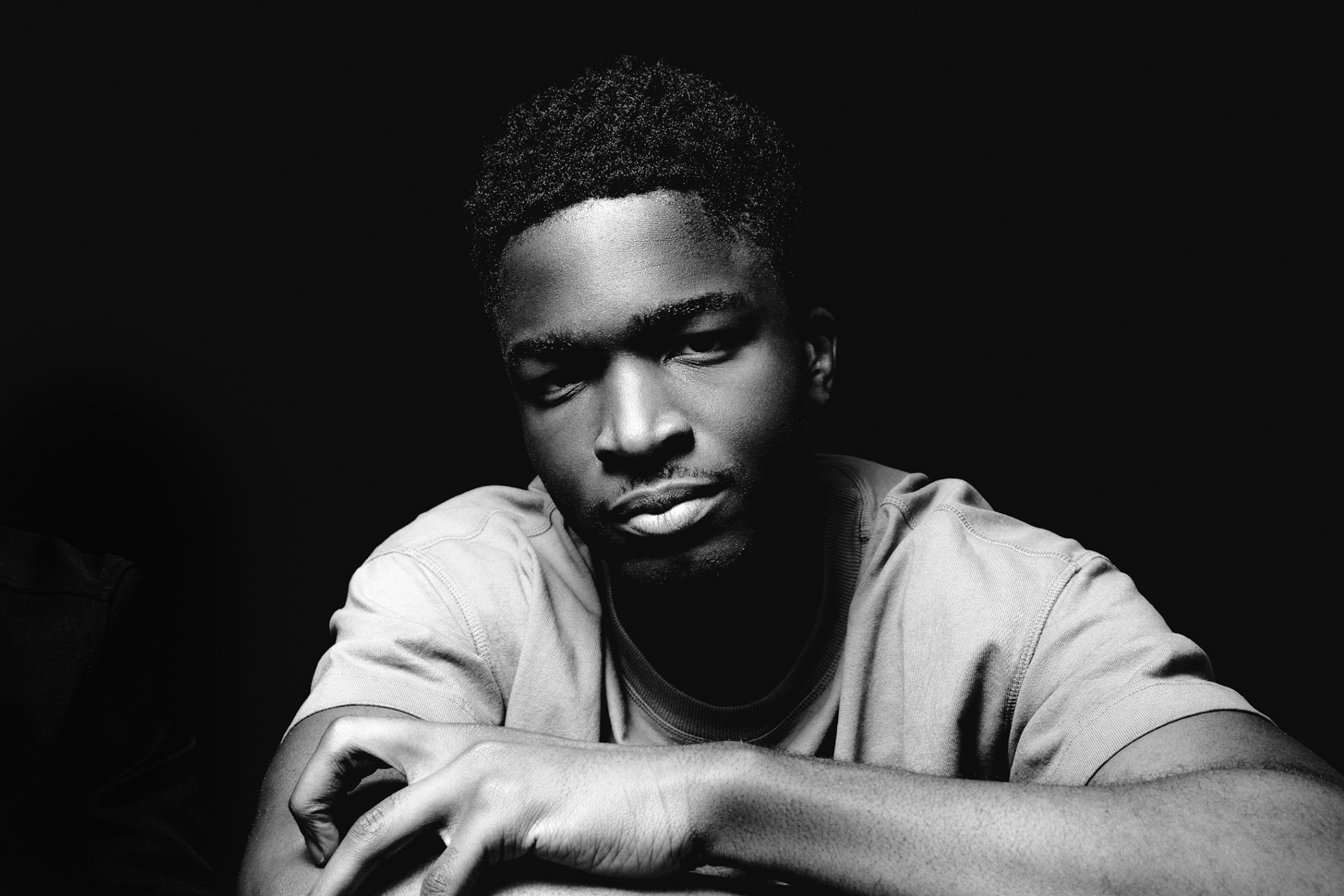
»It’s important to identify prejudices as what they are rather than following them. It’s about recognizing the difference between truth and prejudice.«
Jonas:
When you guys were preparing for that scene, did you discover any own prejudices you are—or were—carrying around with you?
Fionn:
It wasn’t in preparation for that scene, but I sometimes noticed in myself prejudices that I’ve been kind of socialized into. I think we all have this kind of prejudices. That’s the reason why it’s important to identify them as what they are rather than following them. It’s about recognizing the difference between truth and prejudice.
Stéphane (joking):
Do I have any prejudices? No. I mean, I’m a pretty perfect human being…
Both laugh.
Stéphane:
No, let’s be serious. As Fionn said, we all have prejudices and we constantly need to make sure to get rid of them.
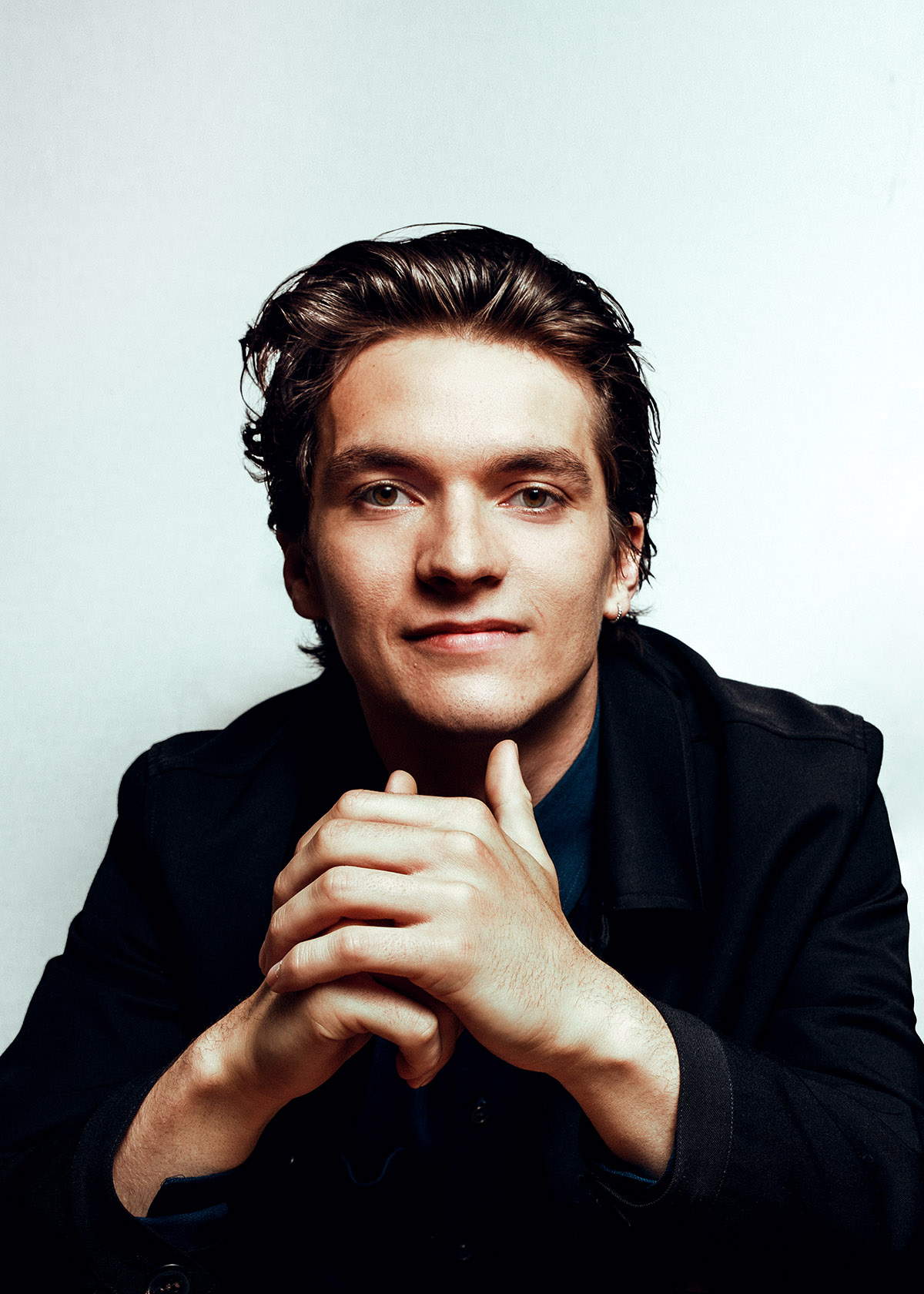
»You can always help, you can always spend money. But it’s not only an individual issue. It’s a political problem way bigger than us.«
Jonas:
In another important scene, there’s suddenly a bunch of refugees sitting in the boys’ RV, asking them to illegally bring them to France. This scene demonstrates that today, nobody is really able to hide from the big problems we’re facing in Europe and in the world. You can get affected by it suddenly and in any place. Simultaneously, lots of people are kind of afraid and feel powerless in the face of that misery. Do you have an idea what we as individuals can do or how we can behave to really make things better?
Stéphane:
Yes, for sure. As an individual, for example, you can always do some volunteer work for NGOs or these beautiful groups who help others who are in an emergency…
Jonas:
Like Gyllen does at the end of the movie…
Stéphane:
Exactly, and that’s the same in real life. You can always help, you can always spend money, food or clothes to these associations that work on a daily basis. But it’s not only an individual issue. It’s a political problem way bigger than us. I couldn’t suggest—me as Stéphane Bak—what we should do. I feel numb to it, but I try my best as a citizen. And that means: Just be more caring, just have less prejudices, just open yourself. That’s what our movie is about: opening yourself to another, no matter if you have the same background. Maybe then you get some nice surprises.
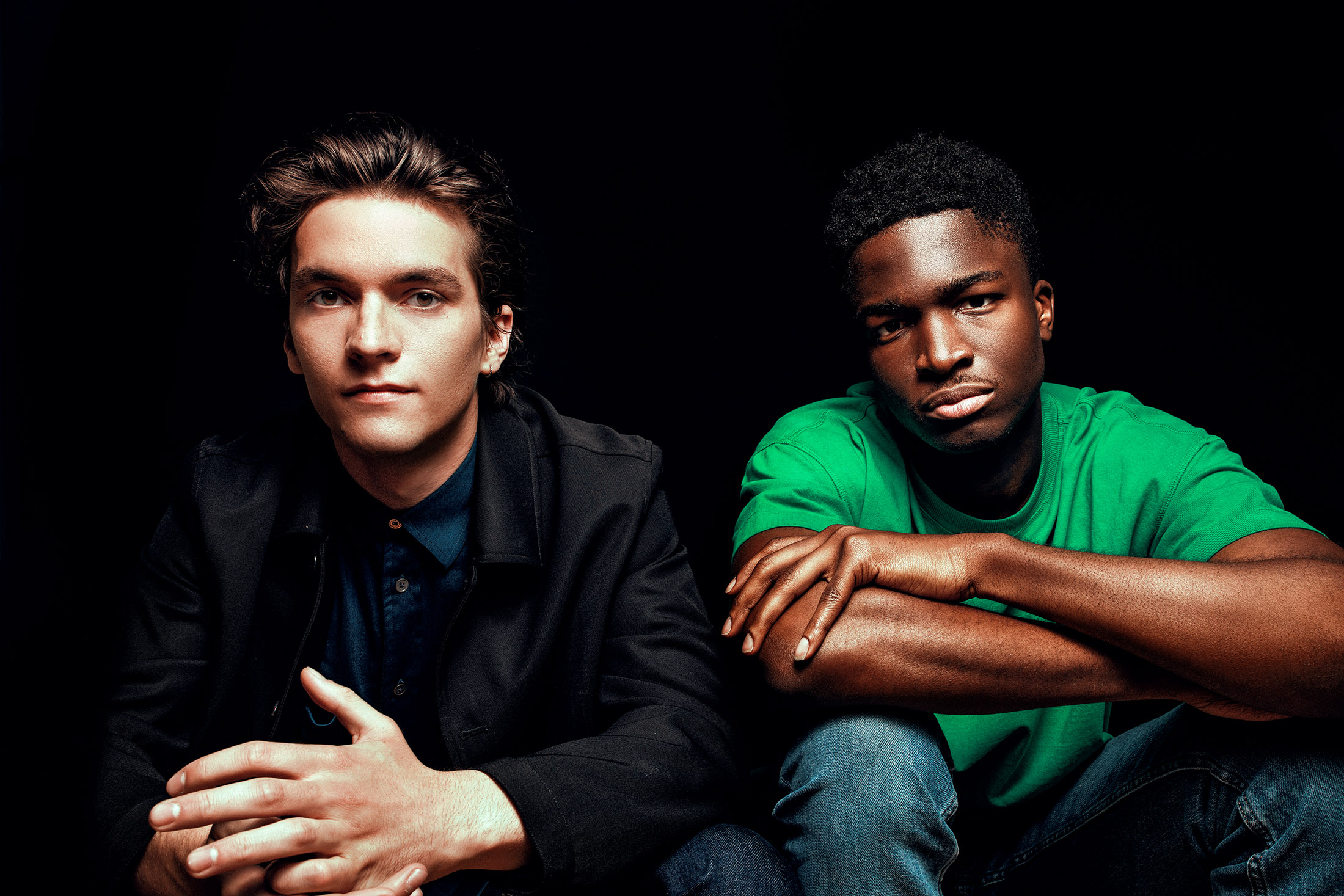
»Acting with other people makes you more empathetic in general, it opens you up as a person.«
Jonas:
Stéphane, did being a stand-up comedian sharpen your personal understanding of the world we’re living in?
Stéphane:
I would say obviously yes because stand-up comedy is all about observation. You’re just watching people every day, you’re looking what they do and how they feel, you’re reading the news—and this nourishes you. So yes, when I was doing stand-up comedy, that was very helpful. And I would say playing in movies is very helpful, too, because you get to stumble across the vision of another person, then you switch identities on the set and all those things come to fusion—and so you get a movie like Roads, for example.
Jonas:
Fionn, did playing in productions like Dunkirk, Black Mirror, Queers or Roads sharpen your personal understanding of the world we’re living in?
Fionn:
When you’re acting, you’re constantly trying to be in the moment and to be open, but it’s also making you very much look at yourself and overanalyze sometimes what you’re doing and how you’re feeling. But on the other hand, when you’re acting with other people, you need to be really attentive to what they are going to do and be able to interact with them and to be open to how they’re feeling within a scene or anything else—which means that you’re more empathetic towards people because you have to, otherwise you can’t play with them. I think that also makes you more empathetic in general, it opens you up as a person. When you’re acting, you’re constantly opening up for the audience in a way that you don’t in day-to-day life. I think that it stops a certain amount of disassociation and desensitization from happening that otherwise might.
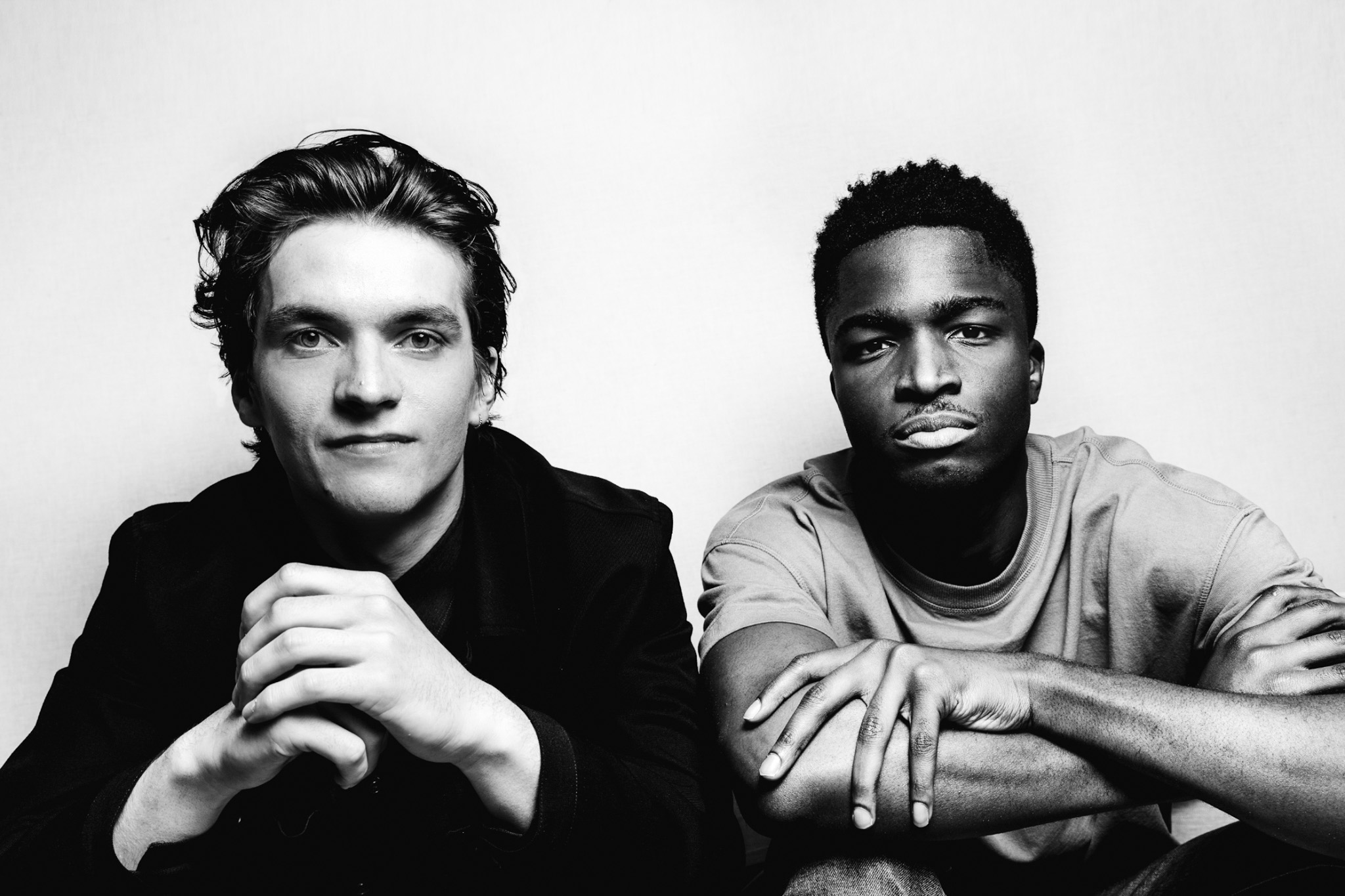
»Every time Stéphane walks into a room, I immediately feel like a slug.«
Jonas:
William and Gyllen come along because they help each other—in the end, it’s two friends on a motorbike just doing crazy, silly and stupid stuff together, as they call it in Roads. Are you guys staying partners in crime out of the movie, doing crazy, silly, stupid stuff together from time to time?
Stéphane:
Yes! Fionn was in Paris two weeks ago. We went to a restaurant, we drove in my car, we listened to some Kanye West music even though he doesn’t like it…
Fionn:
Actually I don’t mind some kinds of that stuff.
Stéphane:
You don’t mind the Kanye West stuff, but you do mind the Magga Braco stuff, I feel you!
Both laugh.
Stéphane:
But yeah, we get to get together sometimes to be silly again and I wish we would do that more often. Fionn is a great guy and even better in reality than on screen. But the fact that he’s living in another town, even in another country, makes it a little difficult. However, we’re having a very good time right now presenting our movie everywhere. But we don’t get on some RV or motorbike, we’re too dangerous for that—we just take the bus.
Stéphane smiles, Fionn bursts into laughter.
Fionn:
Yeah, we’re so badass, we take the bus!
Stéphane:
We’re honestly very happy to finally talk about Roads because we don’t get to be together a lot of times. We shot that movie maybe three years ago, so we’ve been dying to have all these interviews today. It’s actually a great day, I wish I wasn’t sick.
Jonas:
You still seem to have a lot of energy…
Stéphane:
Yeah, I do!
Fionn (interjecting):
I could never imagine having Stéphane’s energy level. Every time he walks into a room, I immediately feel like a slug. He’s so energetic all the time…
Stéphane (joking):
It’s cocaine.
Both burst into laughter.
Fionn (smiles):
See, that’s what I mean.
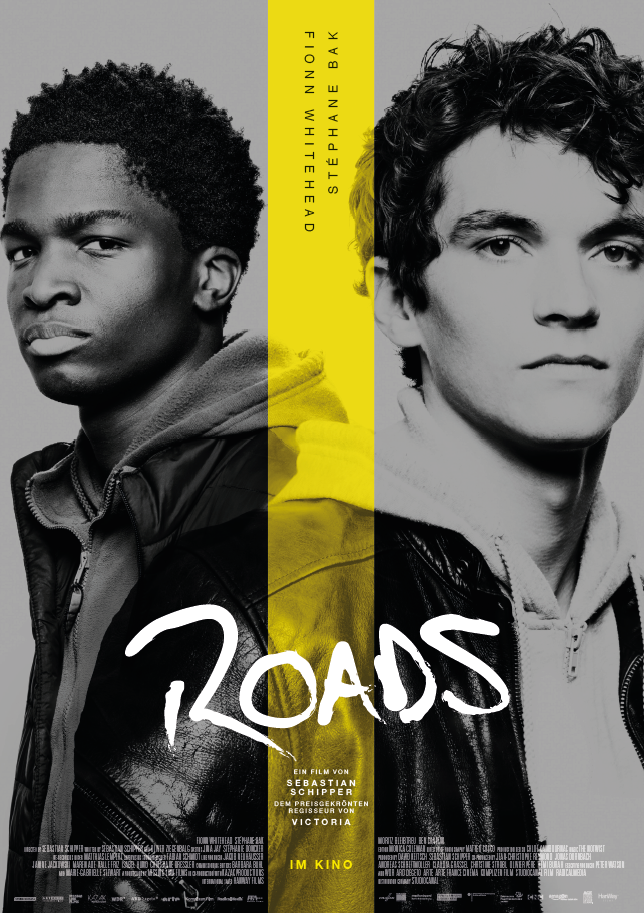
#fionnwhitehead #stephanebak #roadsfilm #mypmagazine #maximiliankoenig
More about Fionn, Stéphane and »Roads«:
instagram.com/fionnwofficial
instagram.com/stephanebak
instagram.com/explore/tags/roadsfilm
studiocanal.de/kino/caravan
arthaus.de/kino/caravan
Photography by Maximilian König:
maximilian-koenig.com
instagram.com/studio.maximilian.koenig
Interview by Jonas Meyer:
Editing by Benjamin Overton:
